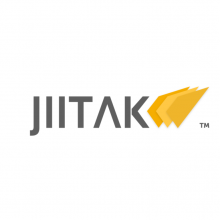
There are 5 Companies in Japan
that provide Disaster Recovery Services!
The Information and Communications Technology (ICT) industry in Japan is touted to be the top industry in the country. In 2025, this sector is worth $467 billion. The Japanese government aims to take this number to 3.4 trillion by 2028.
Discover Top IT Companies in Japan specialized in Disaster Recovery and other related services. Find the best IT service providers for your projects.
Disaster recovery services are like a safety net for your business's data and operations. They help you prepare for unexpected events like natural disasters or cyberattacks, ensuring that you can quickly recover and continue your business even in challenging circumstances.
More than 327 verified IT companies specialize in providing disaster recovery services. These companies have expertise in creating and implementing strategies to protect your data and IT infrastructure. Well-known IT companies offering disaster recovery services include IBM, Dell Technologies, and Hewlett Packard Enterprise (HPE).
Handpicked companies • No obligation to hire • 100% risk-free
Explore Top Disaster Recovery Companies in Japan
ITD-GBS Tokyo is your partner for IT/OT cybersecurity, compliance and engineering in Japan!
Services:
20+ experience providing a complete set of IT Solutions / AI development with JP/EN. Bridging a gap between international office and Japanese office.
Empowering society with groundbreaking, technology-driven innovations in sustainability.
Filter Disaster Recovery Companies in Japan by Cities
Find the right tech company near you or from a specific city. Some of the best companies might be located in smaller cities.
Find more Disaster Recovery companies around the world
TechBehemoths is the world's most advanced and user-friendly platform to match IT Companies with real clients without hustle.
ICT Industry in Japan: Country Profile and Insights
The Information and Communications Technology (ICT) industry in Japan is touted to be the top industry in the country. In 2025, this sector is worth $467 billion. The Japanese government aims to take this number to 3.4 trillion by 2028.
In fact, with the government steadily coming up with innovative ideas and efforts to significantly impact and contribute on a global scale, the industry is expected to boom exceptionally in the upcoming years. Both the public and the private sectors are aware of the importance of the latest, most innovative ICT solutions to advance the economy and are taking steps towards this. Hence, this sector holds immense business potential.
Why Work With Japanese IT Companies
Based on the country data of Japan, there are various opportunities in the ICT Sector. Firstly, the country ranks 3rd as the biggest market with average revenue per user in Asia. This means that local IT companies from Japan have adopted a mixed business model and adjusted it under both local and international IT market requirements. Shortly, Japanese IT companies approach international and local clients differently, keeping the longstanding business tradition but at the same time offering high-quality services and digital products to foreign markets under the rules of Western business style.
What to Be Aware of When Working With Japanese IT Companies
Since tech giants established business connections in Japan, local IT companies faced the need to change and adjust their approach to international requirements, ending the era of a “closed market”. This has brought both benefits and challenges for Japanese IT companies and web and software providers.
The biggest challenge remains the human resources for IT companies, since the legislation does not allow outsourcing professionals from other countries and relies only on native talent. Taking into consideration the demographics and the continuously ageing population, fewer young professionals are enrolled in the IT sector, which automatically means less flexibility and capacity to adopt new technologies and implement them into local digital business environments.
How Reliable Are Japanese IT Companies
Japan has built a reputation for its highly skilled professionals and trustworthy country, especially after WWII, when the US invested and developed under its umbrella the Japanese business environment. The Japanese IT companies, web and software agencies, take full advantage of this position by promoting their services and digital products on the international market.
How Does the Japanese IT Industry Relate to the Neighboring Countries
Japan has probably the most developed IT industry in the region and a proven high potential for providing the entire spectrum of ICT services at the highest quality. Nonetheless, South Korea and China are coming close to the 2nd and 3rd positions in terms of the IT industry and infrastructure development.
What is Disaster Recovery and what are its benefits for your projects?
Disaster recovery services are like a safety net for your business's data and operations. They help you prepare for unexpected events like natural disasters or cyberattacks, ensuring that you can quickly recover and continue your business even in challenging circumstances.
More than 327 verified IT companies specialize in providing disaster recovery services. These companies have expertise in creating and implementing strategies to protect your data and IT infrastructure. Well-known IT companies offering disaster recovery services include IBM, Dell Technologies, and Hewlett Packard Enterprise (HPE).
Disaster recovery service providers use a range of tools and technologies to safeguard data and ensure business continuity. These include backup and recovery software, cloud storage solutions, virtualization technologies, and monitoring systems. Popular cloud platforms like Amazon Web Services (AWS) and Microsoft Azure also play a crucial role in disaster recovery.
Disaster recovery services are typically included in a suite of services that also address business continuity and risk management. Other related services may include:
-
Business Continuity Planning: Developing comprehensive strategies to keep your business running during disruptions.
-
Cybersecurity Services: Protecting against cyber threats and data breaches, which are often a cause of disasters.
-
Risk Assessment: Identifying vulnerabilities and potential threats to your business.
-
Emergency Response Planning: Preparing for immediate actions in the event of a disaster.
-
Data Protection Services: Implementing data encryption, access controls, and data loss prevention measures.
Selecting the right IT company for disaster recovery services requires evaluating their experience, the comprehensiveness of their disaster recovery solutions, and their responsiveness in case of an emergency. Look for providers who offer tailored disaster recovery plans that align with your specific business needs and recovery time objectives (RTOs).
Disaster recovery service providers are essential for various projects and scenarios, including:
-
Data Centers: Ensuring the continuity of critical data center operations.
-
E-commerce Websites: Protecting online businesses from downtime due to technical issues or cyberattacks.
-
Healthcare Systems: Safeguarding patient records and medical systems to ensure uninterrupted care.
-
Financial Institutions: Meeting regulatory requirements for data protection and business continuity.
-
Manufacturing Plants: Minimizing production disruptions caused by equipment failures or supply chain interruptions.
Disaster recovery services are crucial for companies of all sizes and industries, including:
-
Small Businesses: Protecting essential data and ensuring minimal downtime.
-
Enterprises: Managing complex IT environments and maintaining regulatory compliance.
-
Healthcare Providers: Safeguarding patient records and critical medical systems.
-
Financial Institutions: Ensuring uninterrupted banking and financial services.
-
Government Organizations: Maintaining public services and data integrity during emergencies.
Disaster recovery is not a one-size-fits-all solution. It's essential to conduct a risk assessment and work with a disaster recovery service provider to develop a tailored plan that matches your business's specific needs and budget. Regular testing and updates of your disaster recovery plan are also crucial to ensure it remains effective as your business evolves.




